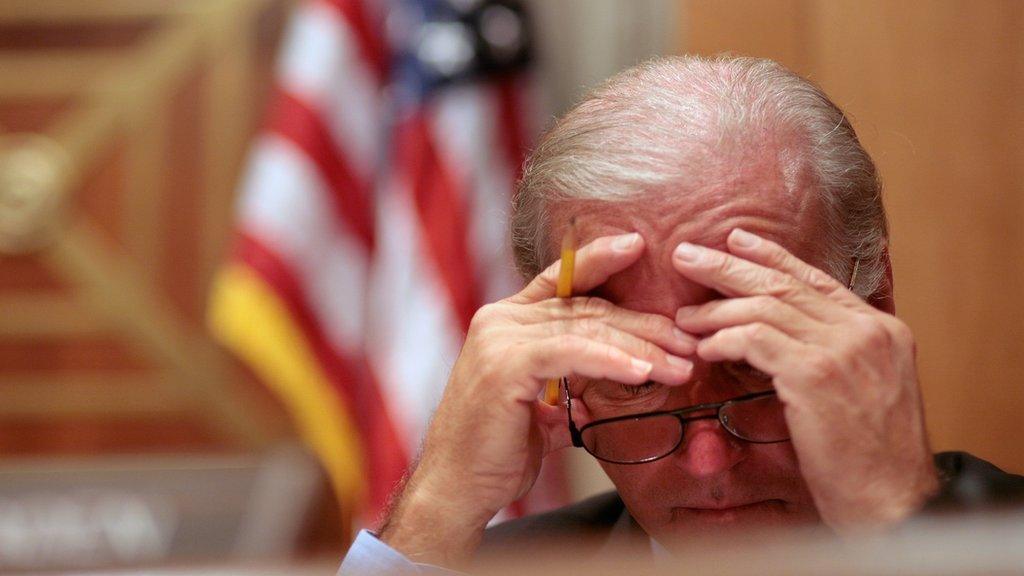Mohsen Fakhrizadeh: Iran 'makes arrests' over scientist's killing
- Published
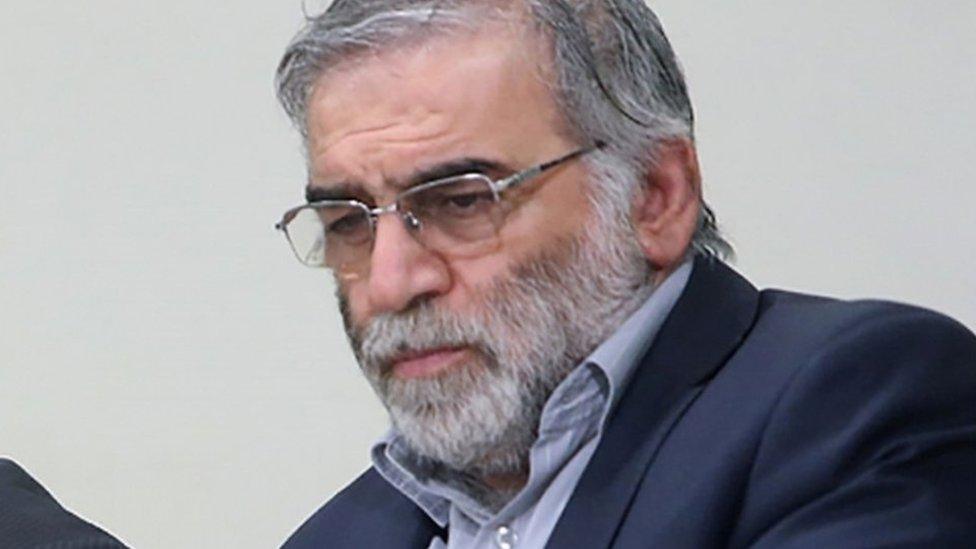
Mohsen Fakhrizadeh was head of Iran's Organization of Defensive Innovation and Research
Some of the individuals involved in the assassination of Iran's top nuclear scientist have been arrested, an Iranian parliamentary adviser has said.
Hossein Amir Abdollahian told Al-Alam TV he was unable to share the details for security reasons, but that the perpetrators would not escape justice.
He also said there was evidence proving Israeli involvement. Israel has neither confirmed nor denied responsibility.
The scientist, Mohsen Fakhrizadeh, was killed near Tehran on 27 November.
The Iranian authorities have put out conflicting accounts of how he was shot dead as he travelled in a convoy through the town of Absard.
On the day of the attack, the defence ministry said there was a gunfight between Fakhrizadeh's bodyguards and several gunmen. An Iranian report also cited witnesses as saying that "three to four" assailants had been killed.
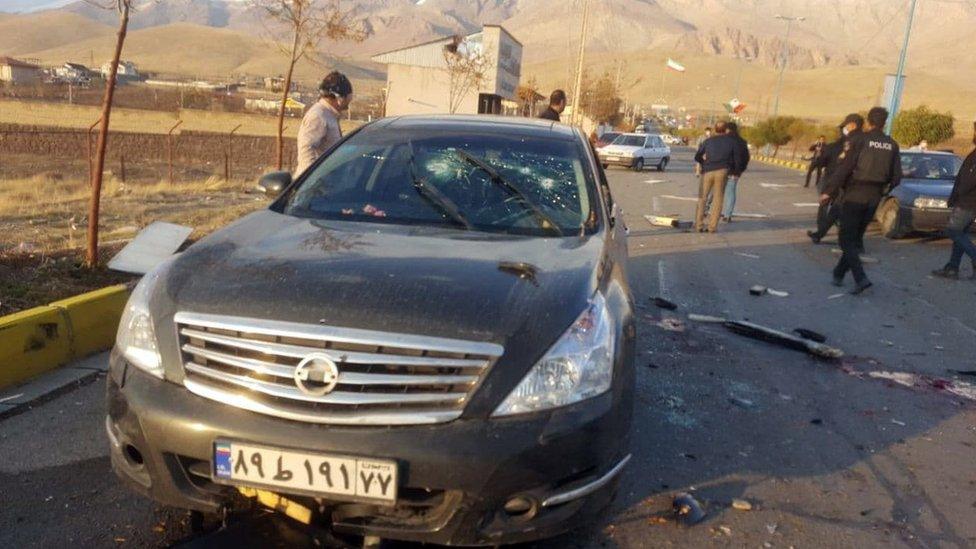
A remote-controlled machine-gun fired 13 bullets at Mohsen Fakhrizadeh's car, according to Brig-Gen Ali Fadavi
But on Sunday, a senior Revolutionary Guards commander said a satellite-controlled machine-gun with "artificial intelligence" had fired at Fakhrizadeh's car.
Brig-Gen Ali Fadavi told local media that the weapon, mounted in a pick-up truck, was able to "zoom in" on the scientist's head and shoot him without hitting his wife beside him.
The claim could not be independently verified and was greeted with scepticism by experts in electronic warfare.
Mohsen Fakhrizadeh was buried in Tehran following his assassination two weeks ago
In an interview with Al-Alam TV, Iran's state-run Arabic-language channel, Mr Abdollahian said: "Some of the individuals involved in the execution of this assassination have been identified by our security apparatuses and even arrested."
He also said that, in his personal opinion, there were various pieces of evidence "about those who planned and carried out the assassination that prove the Zionists [Israelis] were involved".
"But whether the Zionists did so on their own and without the co-operation of, for example, the American [intelligence] service or another service? For sure, they could not have done so on their own," he added, without elaborating.
The Israeli government has not commented on Iran's assertion that it was behind the assassination, although one unnamed official told Israeli TV two days afterwards that "Fakhrizadeh's activities had to be stopped" and that "the world is a safer place without him".
In 2018, Israeli PM Benjamin Netanyahu unveiled what he claimed to be Iran's secret atomic archive
Israeli and Western security sources say Fakhrizadeh, the head of Iran's Organisation of Defensive Innovation and Research (SPND), was instrumental in the Iranian nuclear programme.
They believe the physics professor led "Project Amad", a covert programme that Iran allegedly established in 1989 to carry out research on a potential nuclear bomb.
The project was shut down in 2003, according to the International Atomic Energy Agency.
However, Israeli Prime Minister Netanyahu said in 2018 that documents obtained by his country showed Fakhrizadeh had led a programme that was secretly continuing Project Amad's work.
Iran insists its nuclear programme is entirely peaceful and that it has never sought a nuclear weapon.
Related topics
- Published12 November 2020
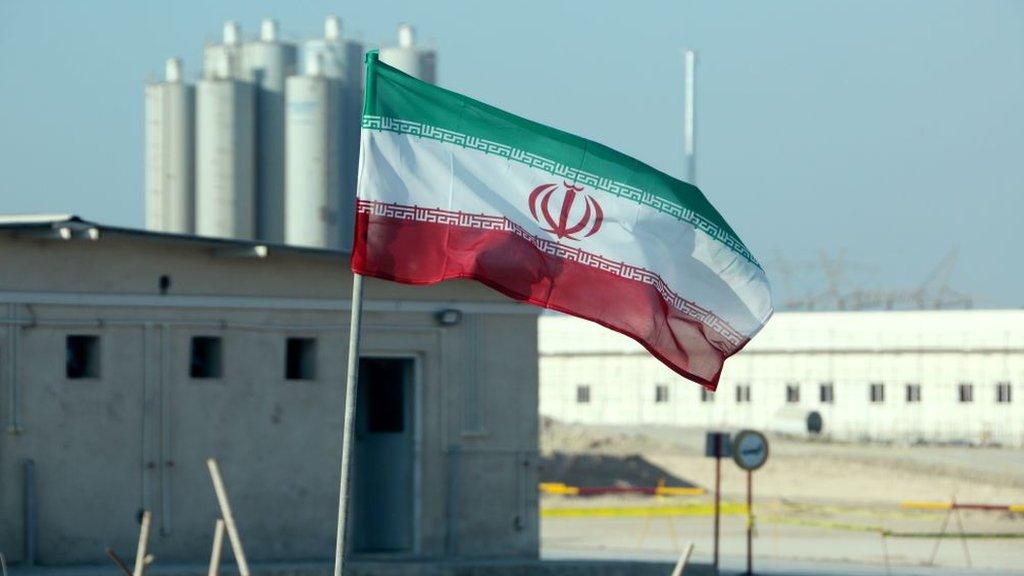
- Published16 November 2021
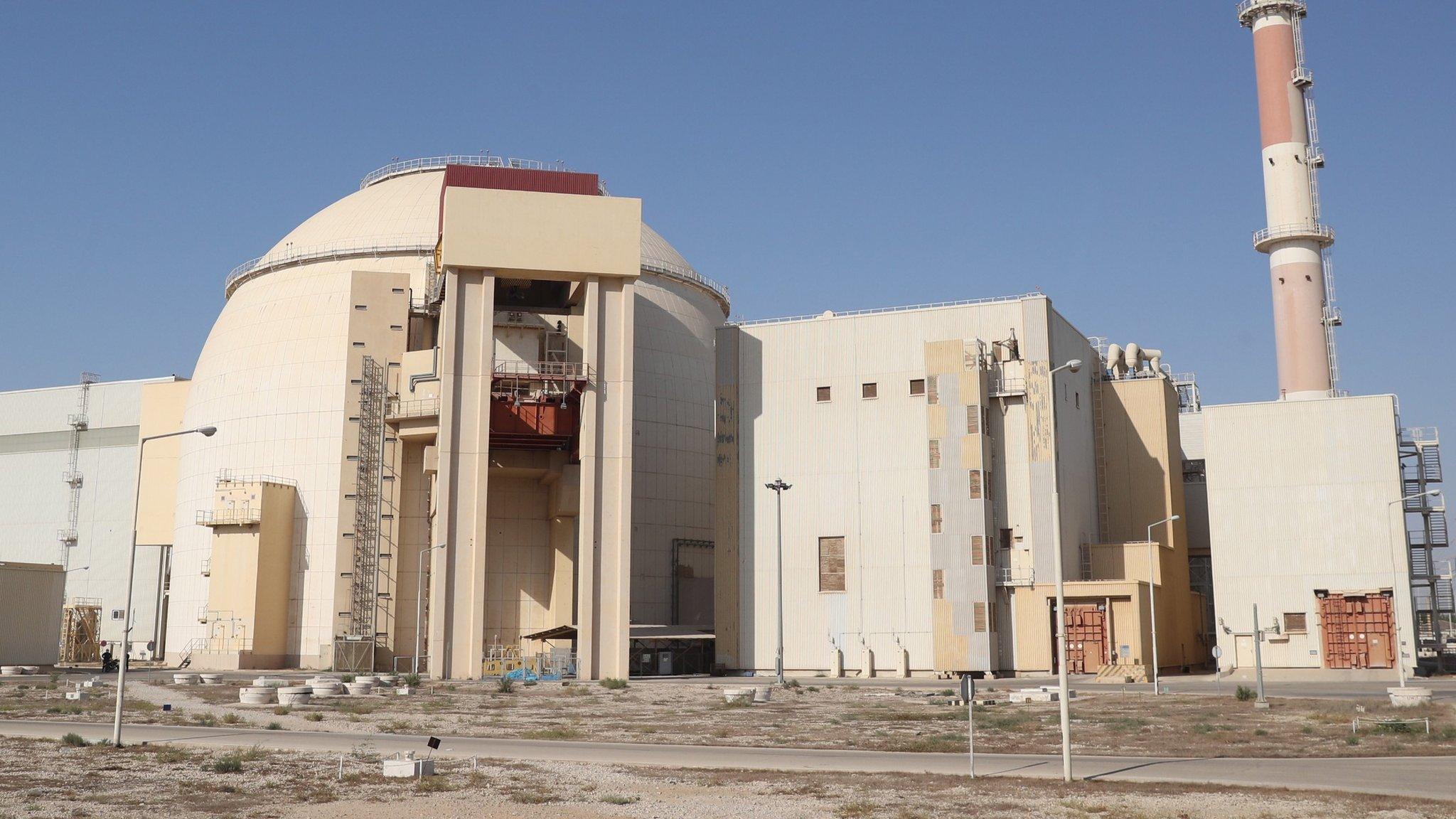
- Published18 November 2020
